Item Added to Basket
Loading...
8 view(s)
The following information is supplied by the Royal College of Speech and Language Therapists.
Individuals with speech sound difficulties will struggle when attempting to communicate with others. For some people these difficulties may be minor and temporary whilst for others their needs will be complex and long term. An individual with a speech sound difficulty may:
- mix up the sounds in words
- use incorrect sounds
- be unable to imitate particular sounds, or groups of sounds
- leave sounds out of words
There are several support methods to consider when assisting a person with speech sound difficulties however.
How to help
When supporting a person with speech sound difficulties consider the following simple support methods:
- encourage the individual to speak freely in the way that is easiest for them
- make time to listen to them
- introduce experimentation with sounds, both in speaking and playing
- play lots of listening games and encourage the individual to listen to speech and non-speech sounds
- encourage enjoyment of songs and nursery rhymes
- speak as clearly and correctly as you can and recommend the individual to watch your face, and you watch theirs
- ask your local registered speech and language therapist for advice
What not to do
There are also several factors to recognise and avoid when supporting the individual:
- Don’t panic! Learning to use sounds correctly can take a long time
- Avoid being critical and don’t reject any attempts at speech
- Avoid insisting on correct imitation of sounds when talking
- If you don’t understand what is being said don’t pretend to
- Don’t try and bribe the individual to speak better
- Don’t have the TV or radio on all the time. The individual may need a silent background to listen to speech occasionally
Note
Speech sounds develop gradually, over a period of time, and children begin to use them at different times. For example, one child may say 'cat' when another child of the same age is still saying 'tat'.


